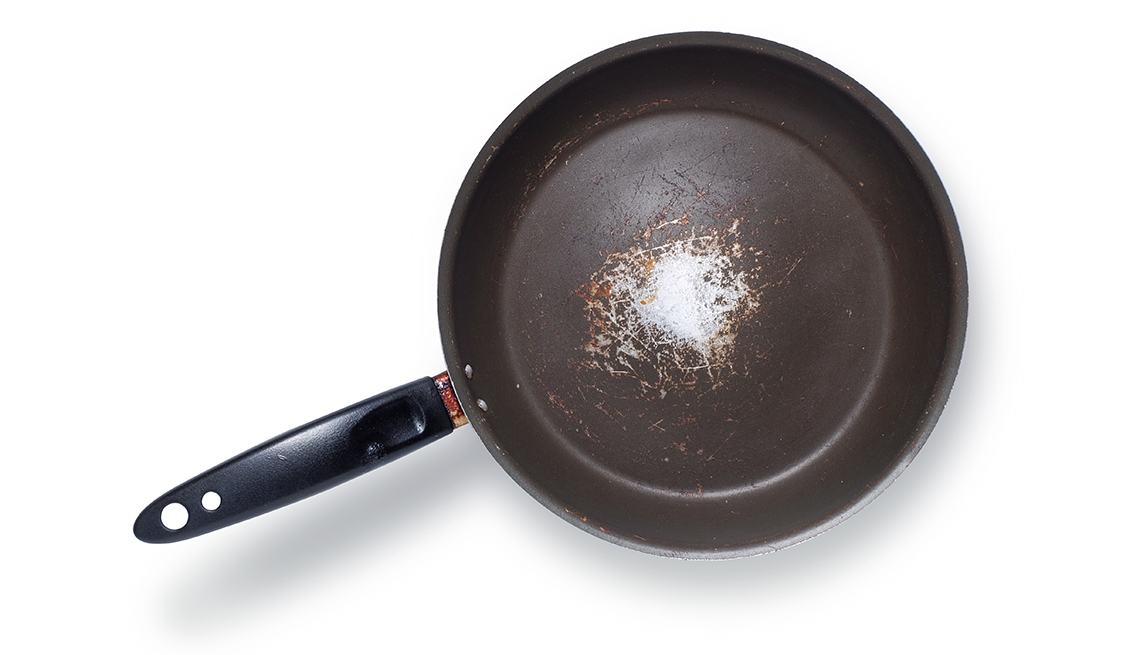
Pots and pans to avoid and what to consider instead
- Select a language for the TTS:
- UK English Female
- UK English Male
- US English Female
- US English Male
- Australian Female
- Australian Male
- Language selected: (auto detect) - EN
Play all audios:

GO BEYOND POTS AND PANS When seeking out safe cooking practices, here are a few other tips to keep in mind. 1. Be mindful of utensils Some spatulas and stirring spoons can also contain
toxins. Plastic utensils may contain Bisphenol-A (BPA) and other hormone disruptors, which can leach into your food when cooking. And just because something is BPA free, doesn't mean
it's safer. "BPA is Bisphenol-A and a lot of times when it's removed, they'll replace it with Bisphenol-S (BPS) or F (BPF), which may have just as strong, if not higher,
endocrine disrupting or hormone disrupting properties as BPA,” says Tonya Harris, an environmental toxins expert. Be aware that metal utensils can scratch up your pans, potentially creating
more opportunities for chemicals to trickle into your food. “I personally use wooden utensils for cooking,” says Steven Gundry, M.D., a cardiothoracic surgeon and author of _The Longevity
Paradox: How to Die Young at a Ripe Old Age._ Harris says silicon can be a good option if you use high quality, food-grade versions. 2. Turn on the fan Since cooking with chemical-laden
nonstick pans can create harmful fumes, it's a good idea to turn the exhaust fan on when cooking. The fan can also help dissipate any smoke or gas from cooking on high heat. 3. Use
parchment paper If you can't find a nontoxic baking sheet, or aren't sure if yours contains harmful chemicals, Bradley suggests lining it with parchment paper before putting food
on top. “That's going to minimize the actual absorption of the chemicals,” she says. 4. Avoid takeout containers Experts like Gundry warn that takeout containers made from foam or
plastic often contain endocrine disrupters. Even paper cartons may have a plasticized lining containing some toxins, he says. "When in doubt, and you have to have take out, bring your
own glass containers from home and transfer [the food] immediately.” 5. Don't microwave food in plastic This is a definite no-no, says Elizabeth Bradley, M.D., medical director for
Functional Medicine at Cleveland Clinic.
